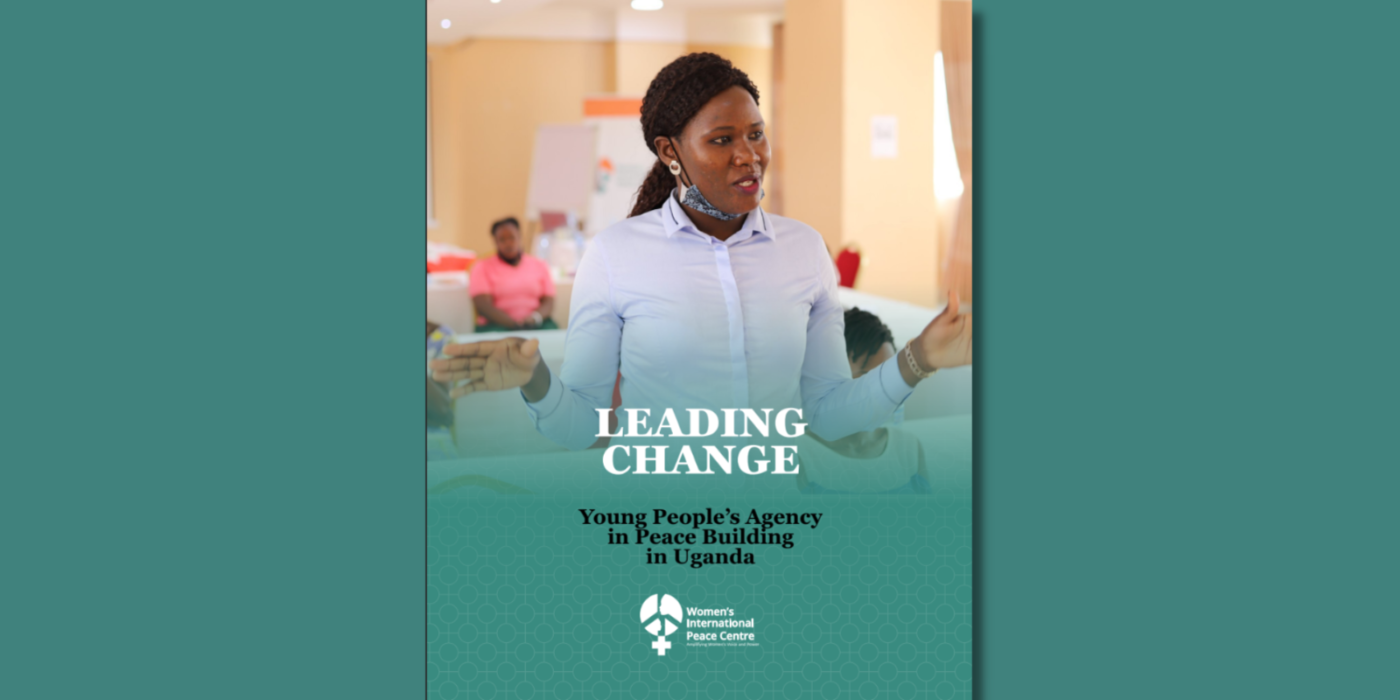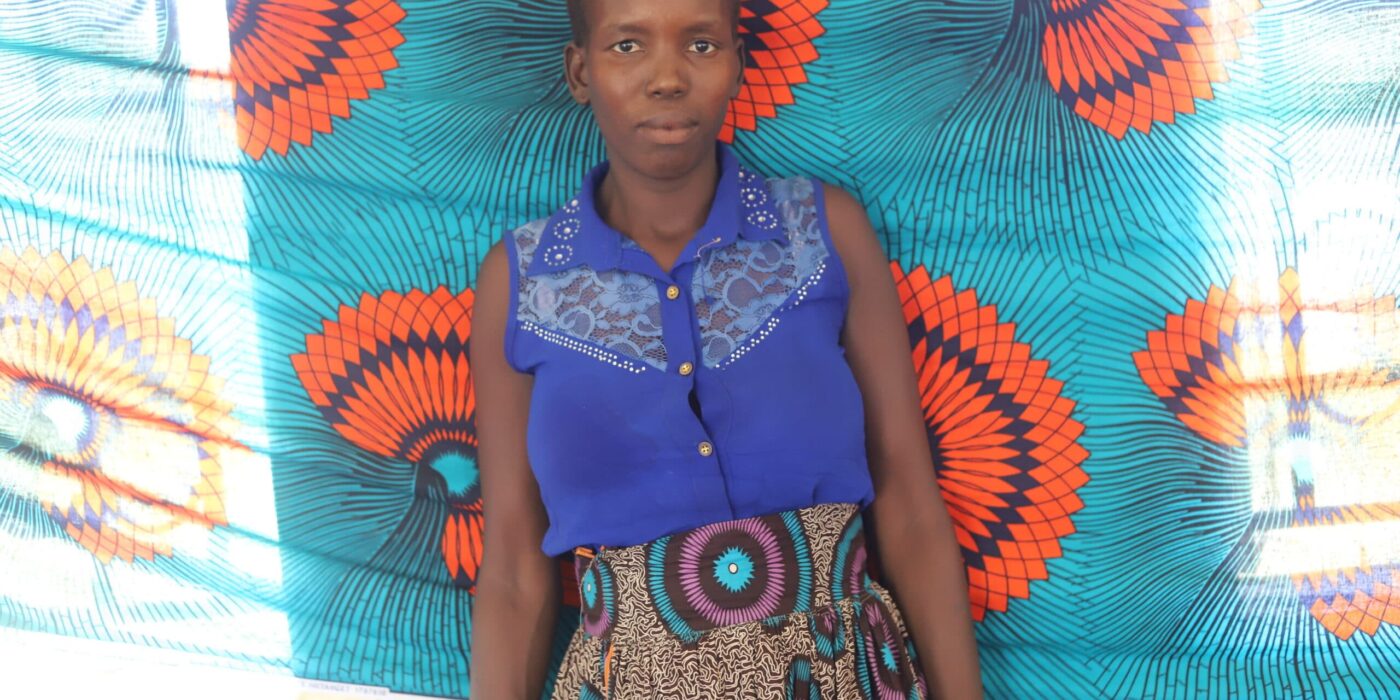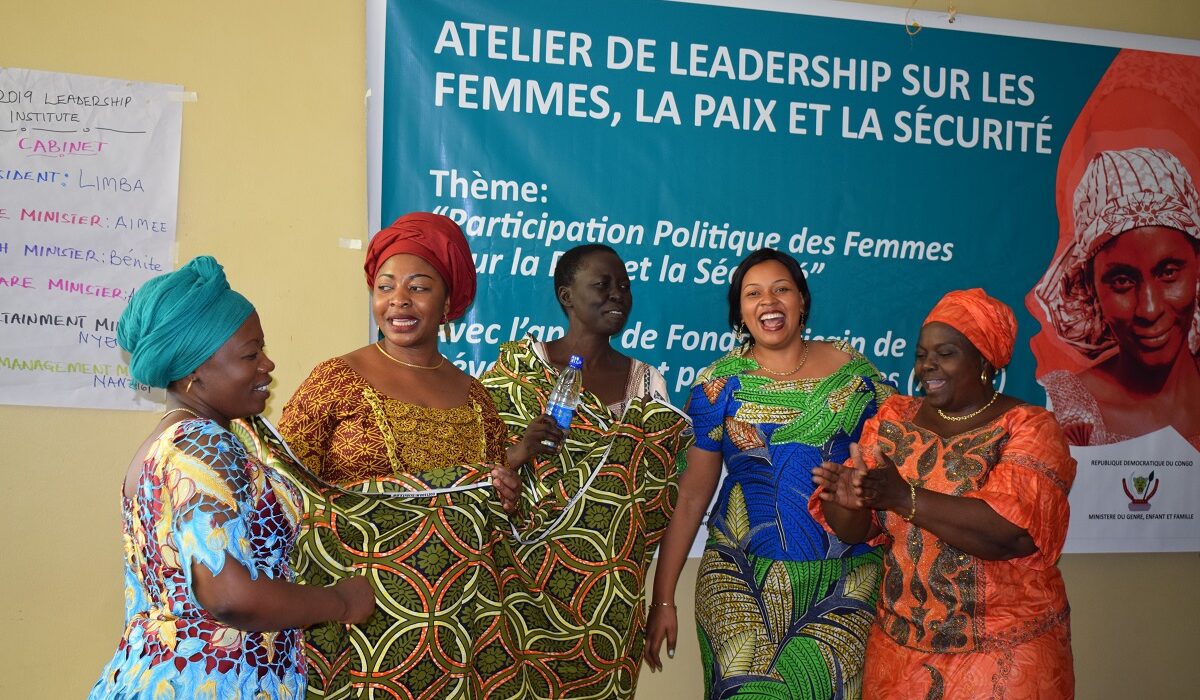By Diana Oroma
“I used to see conflicts happening in my community but I was silent about it because I didn’t know I had the power to influence change and contribute to peace Janet Ayoo Kelly declares.
Janet Ayoo Kelly, aged 28 years is a first time refugee living in Maaji III refugee settlement, Adjumani district in West Nile, Uganda. In July 2016, she fled her hometown, Magwi in South Sudan with her first child who was 2 years old at the time.
However, the situation upon arriving in Uganda was very difficult. “We left all the resources we had worked hard to gain and fled with nothing I had hoped to settle down and rebuild my life”she recalls. She is part of a group that makes bed sheets and tablecloths a source of income for their families. Janet is also now the secretary for the Adjumani Women Peace Mediators Network.
In December 2019, Janet was one of 156 women leaders from Kotido, Yumbe and Adjumani districts trained on peacebuilding and reconciliation by the Peace Centre with the support of UN Women. Following the training, the women leaders formed Women Peace Mediators Networks.
In Maaji III refugee settlement, the women peace mediators developed a community action plan to ensure their participation in peace building right from their homes to the wider community. Since then, women peace mediators have identified, reported and mediated 300 conflict incidents including conflict between refugee and host communities and gender-based violence specifically early marriages that led to withdrawal of girls from schools.
In February 2020, the women peace mediators met again in Nyumanzi settlement to discuss their peacebuilding efforts and learn from experiences in Adjumani, Yumbe and Kotido. Janet learnt of the work that her fellow peace mediators were doing in their communities . She was touched by their stories such as the case involving a young girl form a poor family whose father was forcing her to get married to an elderly rich man who lives in America. The mediators engaged the girl’s family, who abandoned the idea and asked the women to pay for her school fees since they wanted her in school. The women peace mediators then referred the girl to an organization for a scholarship.
Janet also recalls the stories from Kotido where women were mediating large scale conflicts., the The women peace mediators had convened 14 peace dialogues resolve the conflict characterised by rampant cattle raids, illegal guns owned by civilians, food insecurity, sexual and gender based violence against women and girls.
On 10th May 2020, a small disagreement among five Nuer and Dinka youth in Maaji II refugee settlement escalated into a violent tribal conflict leaving two young men dead. Janet was spurred to action.
“As women peace mediators we realized that the situation was getting out of hand. The situation was very tense, with women and children running up and down. Immediately we gathered together to agree on what to do. We informed the Peace Centre who guided us. We then made a phone call to the refugee settlement commandant asking him urgently to call the police to intervene” Janet recounts.
The Resident District Commissioner (RDC), Refugee Desk Office, and District Police Commander immediately responded by deploying police to calm the situation. Janet and the other women peace mediators also took further action.“We rescued the children from the two families who were being attacked for having started the fights and kept them in a safe place“Together with other leaders in Maaji we continued comforting the family that had lost their son and the one whose son was missing and later found dead. We convinced the families not to get involved in the fight and keep away from revenge as it would only cause more harm”she narrates.
Twelve days later, on 22nd May 2020 The Peace Centre convened a peace mediation dialogue in Maaji with key leaders including the RDC, District chairperson LC 5, District Vice Chairperson LC 5, District Peace Committee, Office of the Prime Minister, UNHCR, Lutheran World Federation, Refugee Law Project, Religious, Cultural, political leaders and the Adjumani women peace mediators. The dialogue discussed the conflict situation, identified the triggers and agreed on specific actions to take to ensure conflict indicators are reported to the police and other duty bearers before they escalate.
During the mediation dialogue, the women peace mediators identified the dark hot spots where the violent youth were hiding such as the banana plantation which was acting as their habitat. Janet and the mediators also made specific demands. “We wrote to the Office of the Prime Minister requesting for security lights in the settlement blocks where the youths were hiding to chase and beat women moving to access the health centre at night. I was personally affected by this. I gave birth on the way because I was afraid to pass at the dark spot alone at night when labor started. The lights were installed” she shares.
The women peace mediators continued their work in a follow up mediation dialogue w on 1st July 2020 where conflict early warning indicators were presented to the leaders for redress.
“For sustainable peace in the settlement we continued to engage with the youth and their families by encouraging them to keep calm and sensitizing them about the consequences of violent actions to their lives and families”, Janet narrates. She explains how the work of the women peace mediators brought positive changes, “we continued to monitor conflict early warning indicators and shared with the leaders for their action. For example some youth were spotted in the evenings with walking sticks. Others were seen holding isolated meetings in the local languages. Each tribe stopped their members from crossing where the other tribes live, which kept people in fear. “I am celebrating my breakthrough because of the hard work. I believe that peace is possible with women at the lead. I am now seeing friendship being nurtured again between the Nuer and Dinka youths. They have started having friendly football matches again.
“My skills have doubled. I can now analyze the conflicts and participate in peace building more effectively. I used to see conflicts happening in my community but I was silent about it because I didn’t know I had the power to influence change and contribute to peace,” Janet says, reflecting on her growth as a leader and a peace builder. I am very grateful to the Peace Centre and UN Women for the skills I obtained. I’m proud to be a peace mediator in my community” says Janet.




